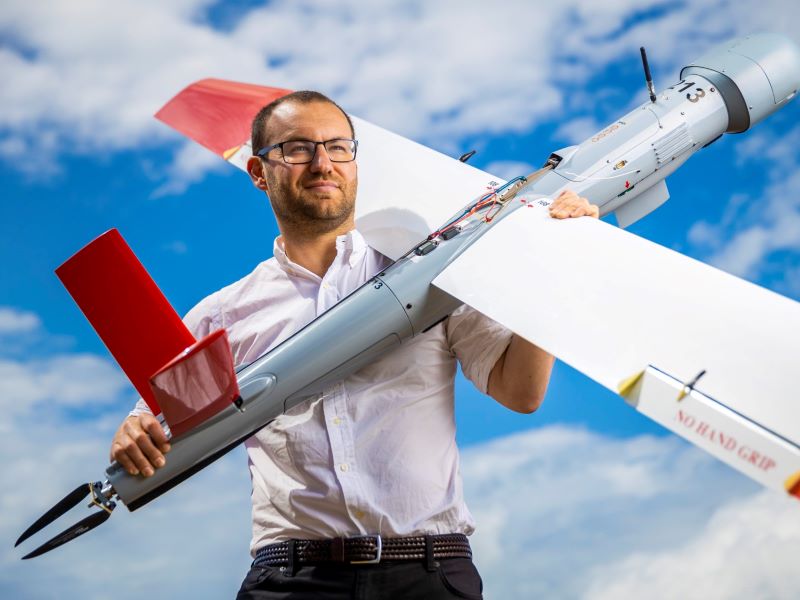Solar powered wi-fi and microplastic recycling are among 10 projects progressing to the next stage of the New South Wales small business innovation program. The projects will share in $10 million in state funding from the first round, while challenges for a second round are now being finalised.
State-based startups including Zetifi, BindiMaps, AusAir, and Main Sequence-backed Advanced Navigation, are responsible for the projects, which are being developed in response to the government’s specific innovation challenges.
The solutions include using drones to count koala populations in remote areas, a low-cost user terminal antenna system to connect with satellites, and a mini water treatment plant for at the-source treatment of sewage from industrial processes.

The New South Wales government established its $24 million Small Business Innovation and Research (SBIR) program last year after it was recommended by an advisory council set up to accelerate research and development outcomes in the state.
It is modelled on the long-running and successful US SBIR program, where a government sets innovation challenges, funds feasibility studies and proofs of concept, and finally considers procuring the solution.
The New South Wales challenges relate to regional connectivity, assisting vision impaired passengers to navigate public transport, recycling personal protective equipment, detecting and counting koala populations, and water purification.
Earlier this year, the government announced the 17 businesses selected for the initial stage to develop feasibility studies for their solutions with funding up to $100,000 each.
This group has been slimmed to 10 businesses, which will now share in $10 million to develop proofs of concept for the various challenges.
- Connectivity Challenge
To increase the strength and resilience of communications networks in regional and remote areas.
-
- Zetifi
- Innovations for Humanity
- Hyperlocal Navigation Challenge
To assist passengers with vision impairments to access public transport services.
-
- BindiMaps
- Advanced Navigation
- Koala Count Challenge
To detect and quantify koala populations in NSW for the benefit of koala preservation.
-
- Ninox Robotics
- BMS – Biodiversity Monitoring Services
- Personal Protective Equipment Challenge
To reduce waste associated with discarded personal protective equipment (PPE) and sterile wrap.
-
- 3rd Axis
- AusAir
- Water Purification Challenge
To reduce microplastic and other contamination due to laundry services in health facilities.
-
- PEGRAS
- Infinite Water
“These collaborations have found ways to tackle clearly defined real-world problems in regional connectivity, public transport accessibility, koala population monitoring, reduction of personal protective equipment waste and water purification,” Minister for Science, Innovation and Technology Alister Henskens said.
Chief scientist & engineer Professor Hugh Durrant-Whyte, whose office is overseeing the SBIR, said the 10 projects will use the $10 million in funding to develop proofs of concept.
“The devices and systems being developed by these NSW businesses are cutting-edge, and this stage is key to ensuring they can commercialise and realise their potential,” Professor Durrant-Whyte said.
“Some of the innovative technologies receiving funding include a method to turn plastic waste from hospitals into 3D printing feedstock, a solar-powered wi-fi system to provide coverage in places mobile network operators cannot reach and a treatment to remove microplastics from water.”
A second round of the SBIR will contain new challenges, which are being finalised for an upcoming announcement.
The SBIR program was originally introduced by New South Wales Parliamentary Secretary Gabrielle Upton as part of her role overseeing the state’s research and development strategies. She will resign at the next election.
Do you know more? Contact James Riley via Email.

